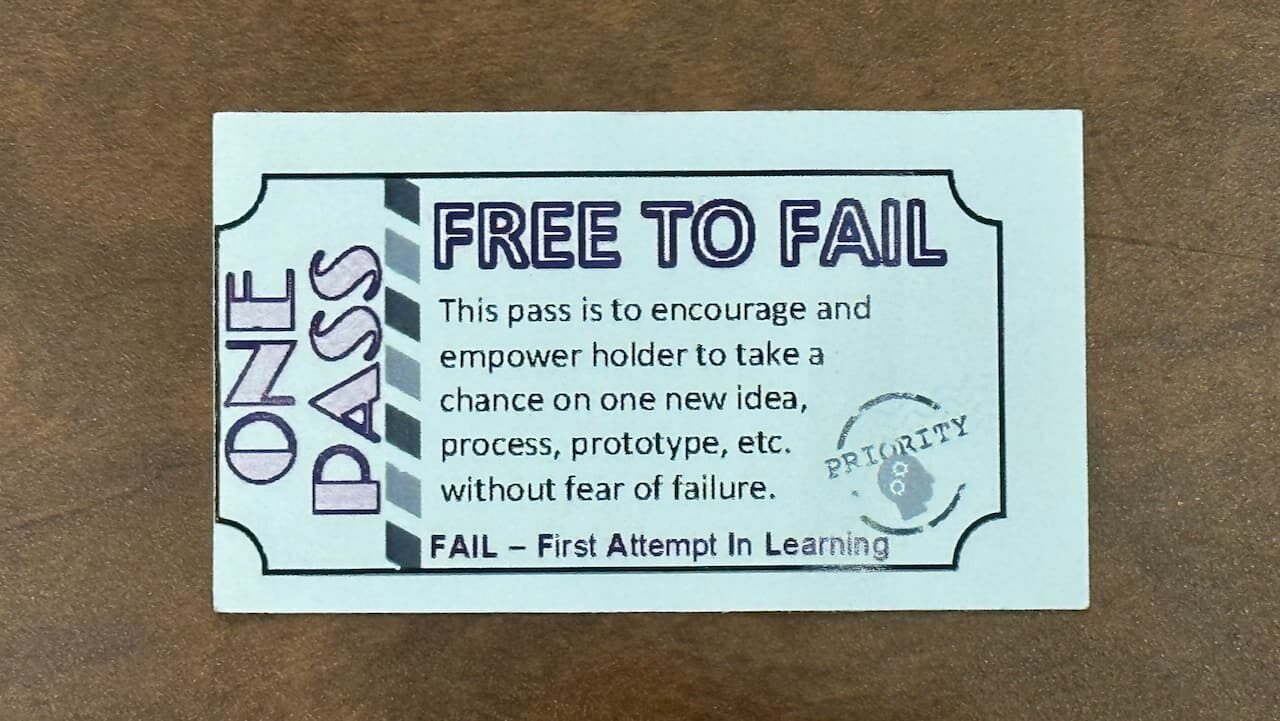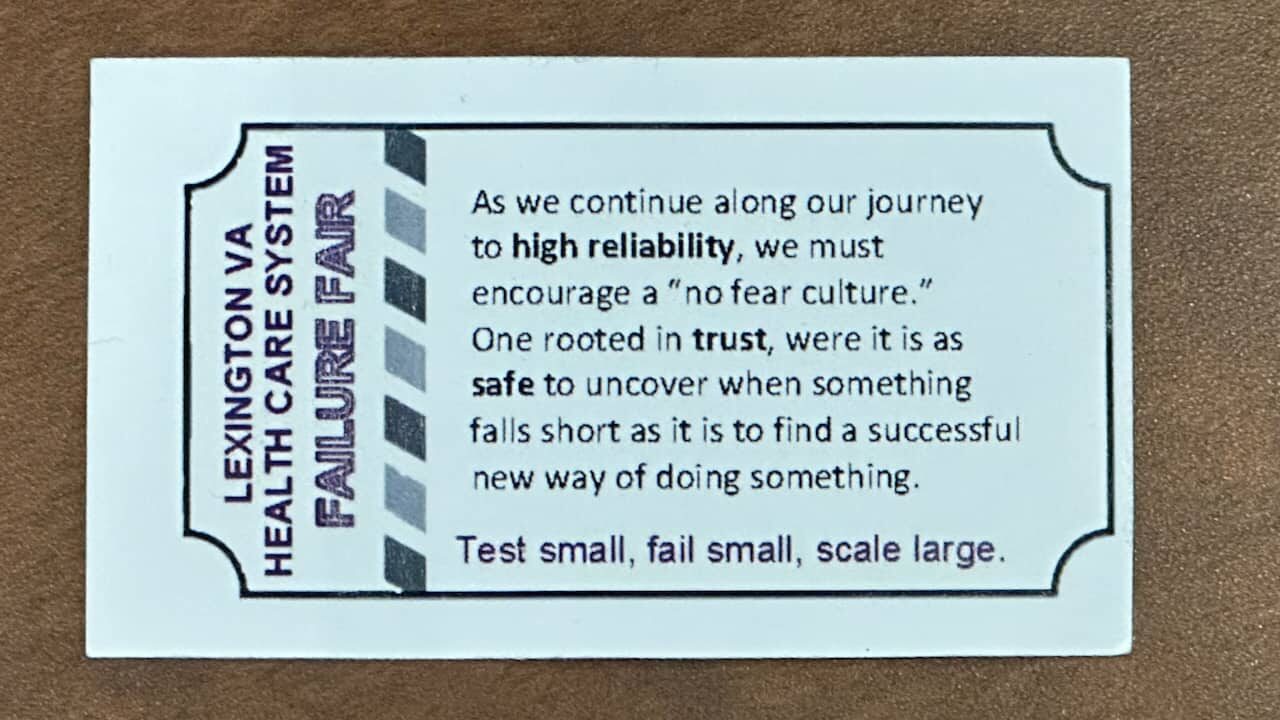Below is some material that I wrote, but didn't use, in my book The Mistakes That Make Us: Cultivating a Culture of Learning and Innovation. Maybe it was a mistake to cut it. But the material wasn't really related to my podcast. It was based on some interactions with some Veterans Administration Health Care leaders after giving a talk on learning from mistakes last November.
What is culture?
Some say it's simply how we do things in this organization.
The late Edgar Schein, a famed MIT professor, wrote that we can observe and describe culture through artifacts, espoused values, and assumptions.
An Artifact from a Veteran's Administration Healthcare Site
One example of an artifact is a small card given to me by a U.S. Veterans Health Administration site leader who is building a culture of learning from mistakes.
On one side, the card said the holder was “free to fail.” The card framed a “FAIL” as the:
“First Attempt In Learning.”

It continued:
“This pass is to encourage and empower holder to take a chance on one new idea, process, prototype, etc. without fear of failure.”
The woman who created the card clarified it was not meant to imply that the holder can take just “one risk” or make just one mistake.
Hear Mark read this post — subscribe to Lean Blog Audio
The back of the card reads:
“As we continue along our journey to high reliability, we must encourage a ‘no fear culture.' One rooted in trust, where it is as safe to uncover when something falls short as it is to find a successful new way of doing something. Test small, fail small, scale large.”

The backside of the card emphasizes that their transformation toward becoming a “high-reliability organization” (one that delivers high levels of physical safety and quality) means encouraging a “no fear culture” where it's safe to make mistakes as long as we are learning and progressing. As we've discussed earlier [in the book], small tests of change lead to small mistakes that we can learn from, preventing larger mistakes that might be catastrophic.
Now, this artifact alone won't create higher levels of psychological safety. This card might remind people what leaders want the culture to be. Leaders cannot simply mandate a culture of learning from mistakes into being.
Their actions matter more than the words that are said or printed on a card.
This card could be a helpful reminder in one organization, while it might trigger eye-rolling in another.
It's helpful to see artifacts, but they can't fully describe a culture.
Ensure Actions are Consistent With Espoused Values
Back to Shein's definition, we also need alignment to our espoused values and assumptions — and how do those lead to action? I've suffered in workplaces where leaders said quality and innovation were essential, but their actions proved otherwise. Under pressure, these leaders pushed quantity over quality. They told employees to speak up with ideas but ignored them (or worse, they “shot the messenger” for daring to suggest things could be improved.
I remember sitting in the waiting room for an outpatient MRI and a sign in the lobby proudly stating their organizational values, including “we engage everyone in continuous improvement.” That caught my eye, considering the work I do helping build cultures of continuous improvement. I asked the woman working the front desk about this. Her response was both a blank stare and an eye roll. Were they really living those stated values?
Psychological safety expert Timothy R. Clark (who endorsed my book) defines culture in a more action-oriented way:
“How we interact with each other.”
Some interactions build a culture of learning from mistakes, and others do not. Some interactions actively tear down this culture, even if unintentional. As Clark points out, every team or organization has a culture. The question is if we're actively creating the culture or not. We can actively create a culture of learning from mistakes.
As I discuss in my book, I hope I make the case that the pathway to fewer mistakes, zero harm, and organizational success comes from shifting away from punitive and fear-driven interactions to those that are kind and constructive. It's not about being “nice,” but helpful. That sometimes means challenging people to improve, and working with them, instead of looking the other way or just consoling somebody about a mistake.
Being “Free to Fail” means we'll be able to learn and improve, reducing the number of failures over time.
What do you experience in your workplace? Do you feel “Free to Fail” and are you supported in efforts to prevent mistakes and failures? How do your leaders respond when mistakes and failures occur? What would you like to see change?
Please scroll down (or click) to post a comment. Connect with me on LinkedIn.
Let’s work together to build a culture of continuous improvement and psychological safety. If you're a leader looking to create lasting change—not just projects—I help organizations:
- Engage people at all levels in sustainable improvement
- Shift from fear of mistakes to learning from them
- Apply Lean thinking in practical, people-centered ways
Interested in coaching or a keynote talk? Let’s start a conversation.










